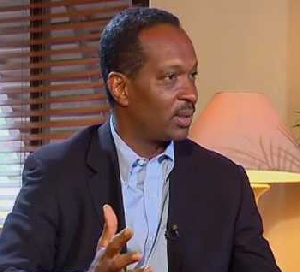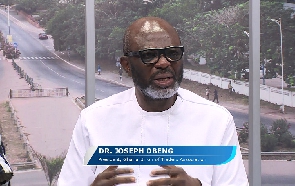- Home - News
- TWI News | TV
- Polls
- Year In Review
- News Archive
- Crime & Punishment
- Politics
- Regional
- Editorial
- Health
- Ghanaians Abroad
- Tabloid
- Africa
- Religion
- Election 2020
- Coronavirus
- News Videos | TV
- Photo Archives
- News Headlines
- Press Release
Business News of Monday, 3 June 2013
Source: B&FT
Power chiefs weigh LNG option
Power utility chiefs have agreed that importing Liquefied Natural Gas (LNG) may well be the way out of the protracted power crisis, as suggested recently by Dr. Kwabena Donkor, Chairman of the Parliamentary Select Committee on Mines and Energy.
Charles Darku, CEO of power transmitter Ghana Grid Company (GRIDCo), said fuel security is “absolutely important” in the business of power generation and that fuel security also rests on the “diversification” of sources of supply.
“So I think importing LNG is a good idea. It means that if our own gas is not available we can just bring in tanker-loads of LNG,” he told the B&FT.
His counterpart at the Volta River Authority, Kwaku Awotwi, equally agreed that importing LNG “is not a bad idea”, and that “other countries have done it. It is part of the portfolio of energy supply that helps a country in times of contingency like we have now. So it is not a bad idea, and I believe the Energy Ministry is making some efforts in that direction.”
“The key really is, at what price? I mean, it shouldn’t be at a price that puts you out of business. It shouldn’t be at a price that is the same as crude oil; then you might just as well continue to buy crude oil. But if it is at a price that is competitive, then it is not a bad idea,” he added.
Gas is considered to be about 50 percent less expensive than crude oil, and as the country moves more towards thermal power generation it is increasingly becoming an important factor in the energy-generation mix.
According to the VRA, the country currently demands 300 million cubic feet of gas per day; none of which is currently available due to the breakdown of the West Africa Gas Pipeline.
The country’s own gas, expected from the Jubilee oilfield, has been long in coming as several deadlines have been missed. It is for this reason that Dr. Kwabena Donkor suggested at the recently-held Ghana Summit on Energy that the country could not but consider bringing in LNG.
Bringing in LNG, however, requires that a regasification facility is put in place first. LNG is natural gas that has been converted to liquid form, usually for ease of storage or, in this case, transport.
Once it has reached its destination of use, the fuel has to be converted back into its gaseous form before it is used. LNG is said to achieve a higher reduction in volume than compressed natural gas (CNG), so that the energy density of LNG is 2.4 times greater than that of CNG or 60% that of diesel fuel.
This makes LNG cost-efficient to transport over long distances where pipelines do not exist. Specially-designed cryogenic sea vessels (LNG carriers) or cryogenic road tankers are used for its transport.











